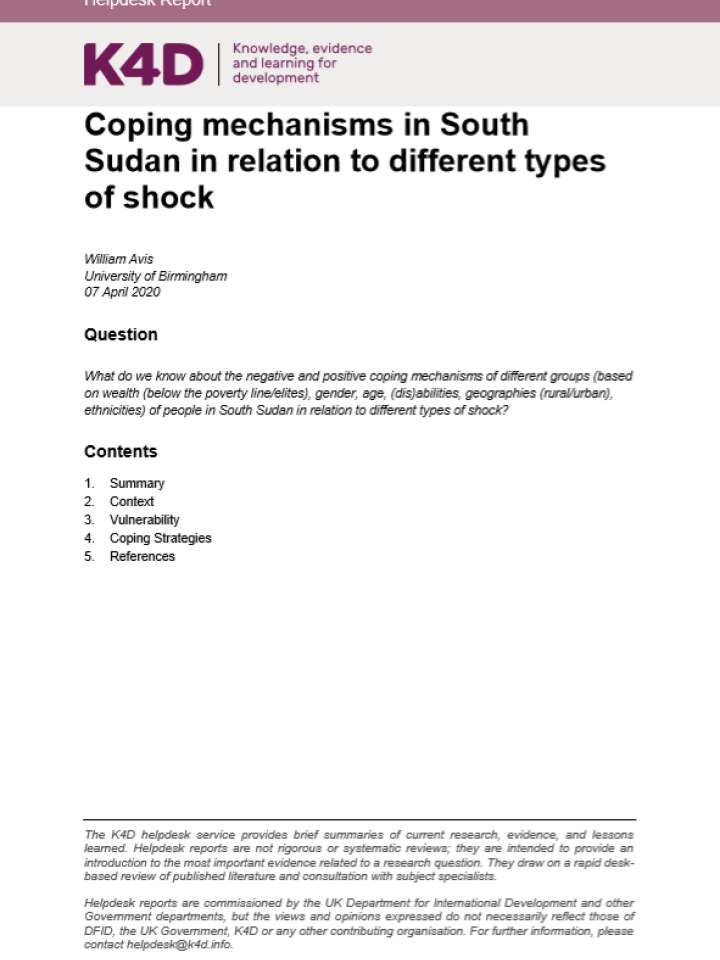Coping mechanisms in South Sudan in relation to different types of shock
This rapid evidence review provides an assessment of negative and positive coping mechanisms of different groups (based on wealth (below the poverty line/elites), gender, age, (dis)abilities, geographies (rural/urban), and ethnicity of people in South Sudan in relation to different types of shock. It draws predominantly on a range of grey literature from multinational and bilateral institutions as well as non-government organisations (NGOs) and think tanks.
The report highlights that coping strategy are varied and multifaceted, they are a product of the vulnerability of particular individuals, households and communities and are the product of responses to shocks and stressors. The author notes that coping strategies in the South Sudanese context have often been developed in response to food insecurity, climatic change and conflict and that new shocks may undermine these existing strategies, necessitate evolution of these or the adoption of new strategies. It is also important to underline that these may have both negative and positive impacts that may differ over short, medium and long term time horizons.
Explore further
